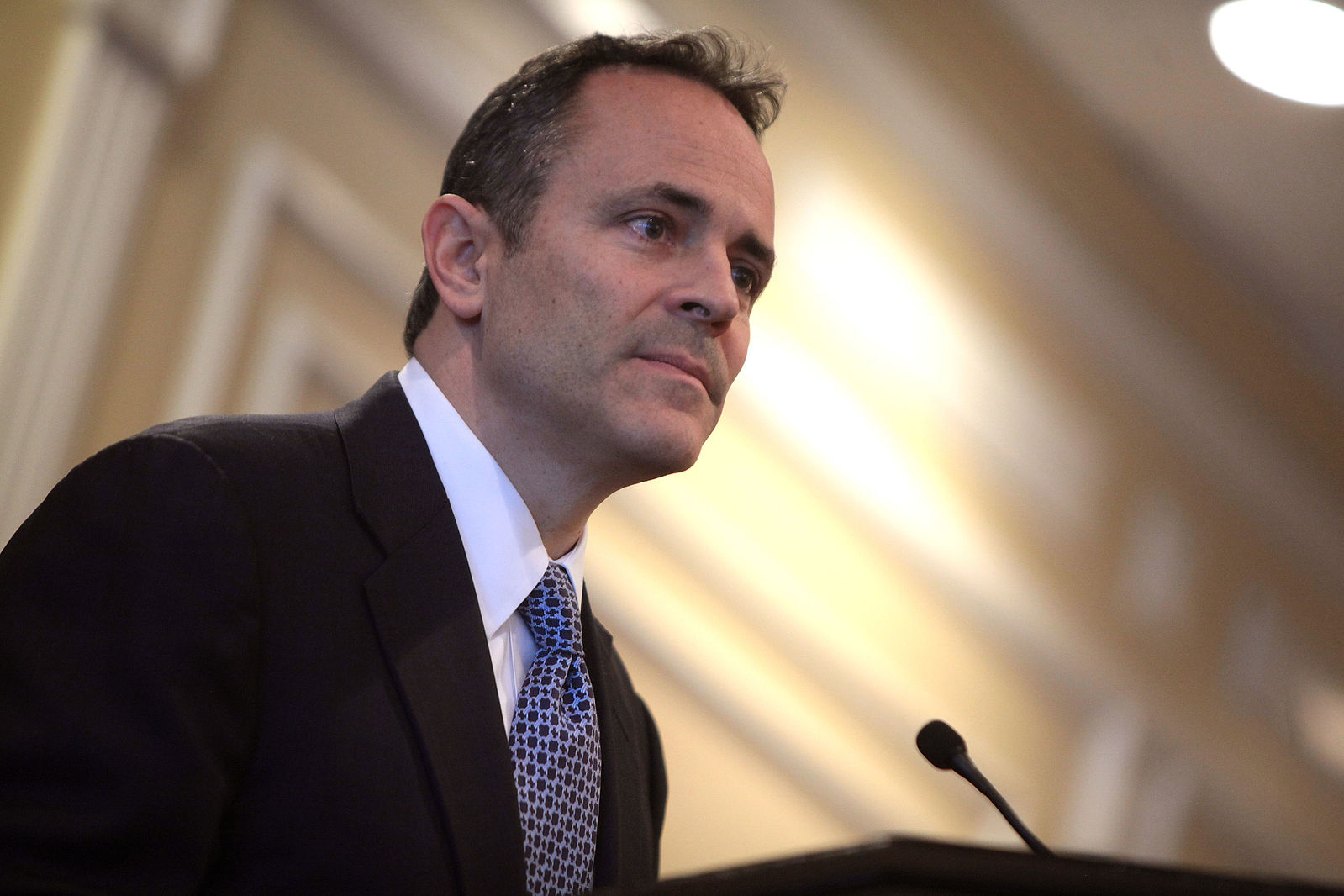
Kentucky Gov. Matt Bevin (R) signed a bill cracking down on the boycott, divestment and sanctions (BDS) movement on Aug. 27, WLEX reports.
The S.B. 143 bill signed into law will prevent state contractors from conducting business with companies that boycott Kentucky’s trade partners, which includes Israel.
Bevin tweeted, “Kentucky condemns the #BDS movement and refuses to tolerate boycott-related tactics used to threaten the sovereignty and security of @Israel or other allies of the United States.”
Kentucky condemns the #BDS movement and refuses to tolerate boycott-related tactics used to threaten the sovereignty and security of @Israel or other allies of the United States…
— Governor Matt Bevin (2015-2019) (@GovMattBevin) August 27, 2019
“My colleagues and I condemn the BDS movement,” Rep. Andy Barr (R-Ky.) said at the bill’s signing ceremony, “and we have sent a letter to the Office of Foreign Asset Control requesting an update on the federal government’s oversight of non-governmental organizations engaged in anti-Semitic hate against our allies in Israel and the Jewish people worldwide.”
StandWithUs CEO and Co-Founder Roz Rothstein tweeted that the bill’s signature was “great news.”
Great News!! Kentucky Gov. Matt Bevin signed anti BDS law @BDSFail @StandWithUs https://t.co/A5s7Q7vwZV
— Roz Rothstein (@RozRothstein) August 29, 2019
In November, Bevin had signed an executive order that barred state contractors from conducting business with those who boycott Israel; S.B. 143 codified that executive order into state law. Kentucky is one of 26 states with anti-BDS laws.
U.S. District Judge Brian Miller threw out a First Amendment challenge to a similar law in Arkansas, ruling that commercial boycotts don’t fall under the purview of protected speech under the First Amendment.
“Israel in particular is known for its dynamic and innovative approach in many business sectors, and therefore a company’s decision to discriminate against Israel, Israeli entities, or entities that do business with or in Israel, is an unsound business practice, making the company an unduly risky contracting partner or vehicle for investment,” Miller wrote in his ruling.























 More news and opinions than at a Shabbat dinner, right in your inbox.
More news and opinions than at a Shabbat dinner, right in your inbox.